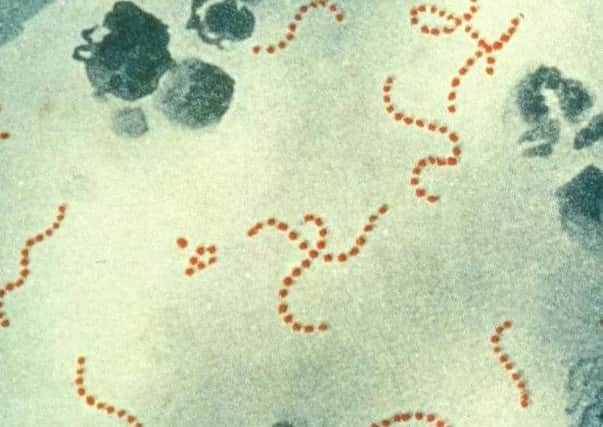New advice issued as scarlet fever cases peak


Public Health England (PHE) has said that there were 1319 new cases between 21 to 27 March, the highest weekly total recorded since 1982when the records date back to.
A total of 10,570 cases of scarlet fever have now been reported since the season began in September 2015.
Advertisement
Hide AdAdvertisement
Hide AdBut Wigan Council has previously said it has seen a number of cases but no more than usual for this time of year and according to PHE the number of cases in Greater Manchester is down on last year, with 402 cases between September 2015 and March 2016 compared to 502 for the same period last year.
Scarlet fever is a seasonal illness which mainly affects people aged between two and eight and should be treated with antibiotics. Cases of the illness usually peak at this time of year.
The bacteria are spread by direct contact with an individual carrying the bacteria or indirectly through contact with bacteria in the environment. Keeping wounds clean and practising hand hygiene can decrease chances of catching a the infection.
Dr Theresa Lamagni, PHE’s head of streptococcal infection surveillance, said: “While we hope that the Easter school break will assist in slowing down transmission of the bacteria causing scarlet fever, we cannot assume or rely on this being the case.
Advertisement
Hide AdAdvertisement
Hide Ad“As such, our investigations and assessment of the impact of this extraordinary rise in scarlet fever continue.
“As we reach peak season for scarlet fever, health practitioners should be particular mindful of the current high levels of scarlet fever when assessing patients.
“Close monitoring, rapid and decisive response to potential outbreaks and early treatment of scarlet fever with an appropriate antibiotic remains essential, especially given the potential complications associated with group A streptococcal infections.
PHE strongly urges people with symptoms of scarlet fever, which include a sore throat, headache and fever accompanied by a characteristic rash, to consult their GP. Scarlet fever should be treated with antibiotics to reduce risk of complications.
“Once children or adults are diagnosed with scarlet fever we strongly advise them to stay at home until at least 24 hours after the start of antibiotic treatment to avoid passing on the infection.”